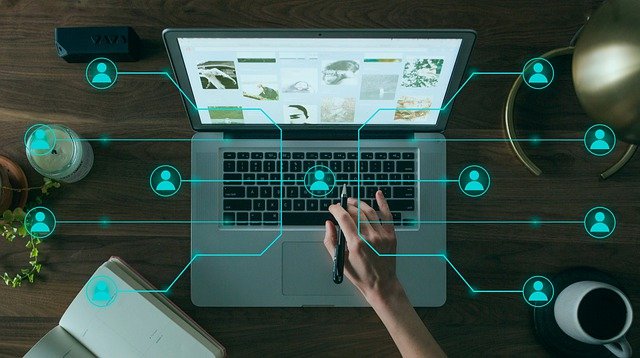9 Crucial Tech Tools for Retailers
Image by 💖MORE ON 👉 https://melovess.com 💖 from Pixabay
Tech tools help retailers achieve the agility, speed, and efficiency customers expect from today’s retail businesses. Not only do these tools enhance planning and reduce overheads, but they also help you gain the competitive edge you need to grow and thrive in the market. Retail tech tools enable you to set up systems that update your database automatically whenever products sell or are moved from one location to another. They also allow you to automate inventory management, avoiding over or under-ordering.
Retail technology can be convenient and cost-effective, leading to new developments. Besides facilitating inventory control, tech tools allow you to track your margins, improve forecasting, and adopt a just-in-time relationship with suppliers. Retail technology also will enable retailers to boost and personalize each customer’s experience. Since operations can be recorded in a systematic and structured manner, they allow detailed sales and transaction volume analysis. Below are crucial tech tools for retailers.
1. Shopping and payment apps
Retailers can enable in-store clients to scan their purchases and check out with an app, eliminating the need to go through the checkout line. This ensures a contactless and safe experience for in-store shoppers. Customers can also shop online, arrange for pick-up and then pick their items through curbside deliveries or in the store, all enabled by mobile apps. However, you may need to verify for restricted goods like alcohol with the help of an ID scanner. If your clients use checks or credit cards to pay, ID scanning can help you catch fraudulent transactions by fishing out fake IDs.
2. Accounting software
Managing finances can be challenging. With accounting software, you can track your funds as they come and go out of your business accounts. It allows you to automate invoices, monitor expenses, control your finances, reconcile bank statements, manage inventory, and maintain tax compliance. The ideal accounting software has invoice processing, accounts receivables, and automatic invoicing features.
3. Customer Relationship Management (CRM) System
A CRM tool helps retailers with better customer interaction management. Maintaining in-person interactions can be challenging, particularly when reaching your clients through emails, phone calls, messages, social media, and messenger services. You can reach your customers through any platform with a CRM tool while ensuring streamlined communication. When sourcing a CRM tool, ensure it has contact management, lead management, interaction tracking, customer data management, personalization, and demographic data collection.
4. Customer experience software
Customer experience software helps retailers manage their interactions with potential and current customers. It organizes, automates, and synchronizes customer touchpoints to enable you to service them better and respond to any issues they may have quickly. Customer experience management involves large quantities of data that retailers should manage and act on time. The ideal customer experience software should enable omnichannel data collection and consist of centralized data storage and analysis tools. It should easily integrate with existing technologies, including CRMs.
5. Ecommerce software
Ecommerce software drives online store operations and helps retailers with inventory management, payment processing, tax computing, order fulfillment, and product addition or removal, ensuring effective e-retail management. The ideal eCommerce software seamlessly integrates with existing systems such as CRM, ERP, CMS, payment gateways, accounting systems, email marketing tools, and social media networks. It should also have an analytics and reporting feature and a search function for shoppers to find what they need much faster.
6. Marketing automation software
Marketing automation helps retailers to forecast future investments, personalizes follow-ups, gives you a comprehensive picture of prospective customer behavior, prioritizes leads, and boosts marketing ROI. Marketing automation tools automate tedious, repetitive marketing tasks such as social media posting, email marketing, and ad campaigns to enhance efficiency and offer more personalized experiences to their customers, streamlining your marketing efforts. The ideal marketing automation software offers lead management, email campaigns, social marketing, real-time alerts, and customized templates.
7. Retail management software
Retail management software combines multiple technologies such as CRM, POS, and inventory management to enhance daily retail operations and customer experience. The ideal retail management system manages store operations, monitors sales inventory, and has a centralized system combining different systems. Using a centralized solution, retailers can facilitate customer checkouts, inventory purchase and management, shift scheduling, and tracking of finances.
8. Mobile Point of Sale (POS) systems
Mobile POS not only streamlines in-store operations but also caters to today’s customer preferences. Mobile POS systems boost customer experience by slashing the time spent waiting on the checkout line. Retailers can start processing the transactions as customers wait in line, enabling fast and convenient checkouts.
9. Social selling software
Social selling software allows retailers to engage with potential clients and sell goods and services via social media platforms, including Facebook, Instagram, and Twitter. It enables retail business owners to promote their goods and services on social media channels, share business-related information and respond to sales queries. Social selling helps retailers attain wider reach and deeper connections with clients. The ideal tool should include lead engagement, social media integration, performance metrics, and content management.
Endnote
Now that you understand the various tech tools available for retailers, beware of how you can align them with your business goals for success and growth. Consider the above tools for your retail business.

